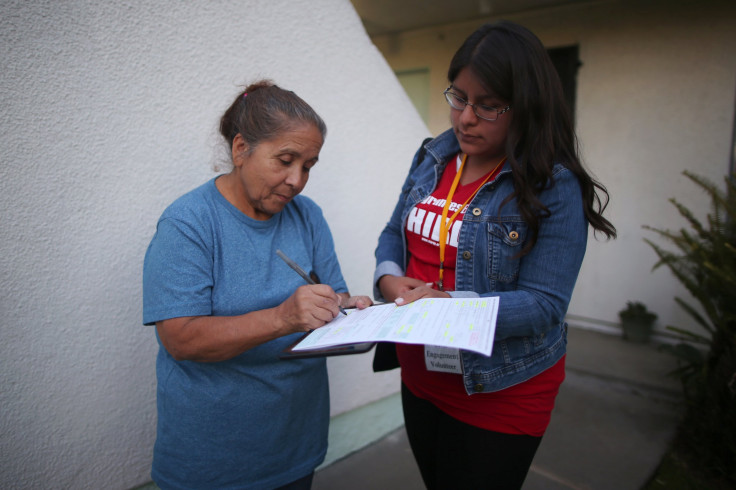Who Can Vote For President? 13 Million Immigrants Living In America Can't Partake In Presidential Election

Over 13 million people living in the United States will be unable to participate in one of the most contentious presidential elections in modern history, despite each candidate's efforts to attract support from voting blocs across the nation. That's because green card holders, or lawful permanent residents, aren't considered a federal voting bloc at all.
Permanent residents enjoy many of the same privileges as typical Americans, from purchasing firearms to qualifying for welfare and social security benefits. They're barred, however, from some of the most fundamental responsibilities citizens are expected to partake in, including the presidential election. Many states have also passed legislation requiring full citizenship to participate in even the most local elections, from school boards to city governments.
Permanent residents can only participate in some local and state elections that allow for non-U.S. citizens to vote. But even then, their options are severely limited: only three states allow green card holders to participate in municipal or town elections, while only nine allow for permanent residents to vote in specific district elections, according to the National Conference of State Legislators.
Voting is not an honor for those *living* in this country, says me, the non-citizen permanent resident. #Debate
— Ankit Panda (@nktpnd) October 20, 2016
Approximately 13.3 million permanent residents were living in the U.S. on Jan. 1, 2012, with nearly 8.8 million of those green card holders being eligible to naturalize, the Office of Immigration Statistics at the Department of Homeland Security reported. A permanent resident can only apply for citizenship after living in the country for three or five years, depending on how they obtained their status, and meeting a series of qualifications.
Green card holders can travel freely throughout the country, eventually apply for citizenship and even invite relatives to live with them and apply for green cards, as well. These permanent residents file income tax returns and can work at any job they choose.
While voting in the presidential election has become considered a right exclusive to U.S. citizens over the years, it wasn't always that way.
Permanent residents were once allowed to vote in state and federal elections in at least 40 U.S. states and territories, Los Angeles Times reported. At that time, white men without citizenship were granted voting rights, while the same freedoms were denied to women and blacks.
Bills have been introduced in recent years throughout New York City, Washington, D.C. and Burlington, Vermont, urging officials to allow permanent residents to partake in local elections. Both Republican nominee Donald Trump and former Secretary of State Hillary Clinton have promised immigration reform that would take effect within their first hundred days in office, though neither plan includes extending federal voting rights to the nation's permanent residents.
© Copyright IBTimes 2024. All rights reserved.






















